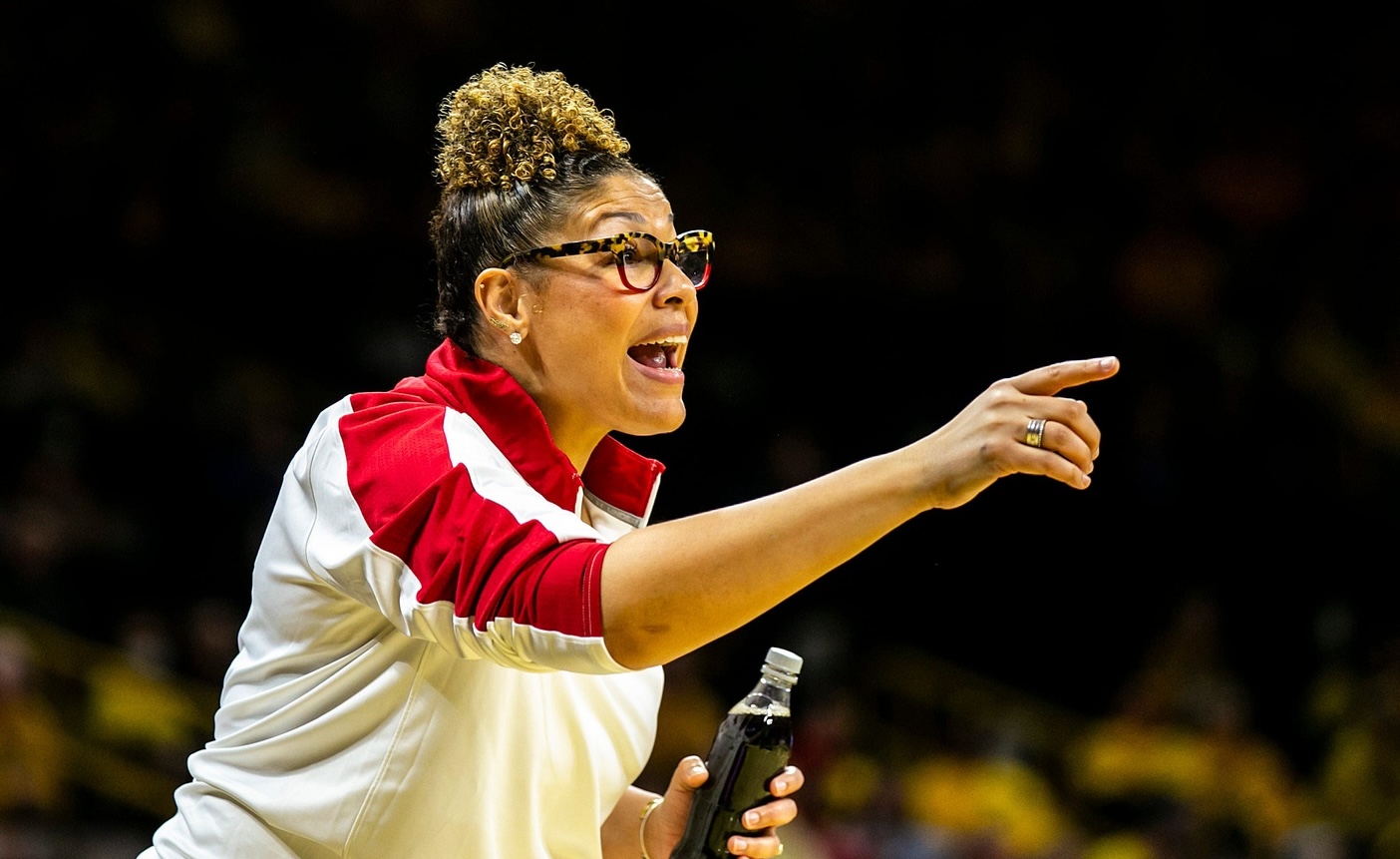Five former Wisconsin women’s basketball players are suing their ex-coach, ex-women’s basketball administrator, and university claiming mental and psychological abuse.
The suit says the coach, Marisa Moseley, bullied her players, discriminated against their disabilities or perceived disabilities, and interfered with their mental health treatment. Several players experienced severe mental health challenges in the program, after which they were met with retaliation and abuse from Moseley, according to the filing, which also claims that the school failed to act after multiple players reported the alleged behavior.
Moseley resigned in March citing “personal reasons” with a 47–75 record over the past four seasons. She was an assistant at UConn under Geno Auriemma from 2009 to 2018 before she became head coach at her alma mater, Boston University.
Five former players—Alexis Duckett, Krystyna Ellew, Mary Ferrito, Tara Stauffacher and Tessa Towers—filed a 51-page complaint in the Western District of Wisconsin on Friday with Moseley, the university’s board of regents, and Justin Doherty, the former associate athletic director for external communications and team administrator for women’s basketball, among other sports. Doherty retired from the athletic department in April after three decades in Madison.
The suit says Moseley “trapped” players in “nearly daily” one-on-one meetings about their personal lives, relationships with families and romantic partners, and mental health. When players were uncomfortable and pulled back, they were punished, the suit says: “As Assistant Coach [Caroline] Doty told Alexis [Duckett], Moseley did not like her attempts to distance herself and reduced her playing time as a result.” Moseley reached out to a parent and the coach of a player’s romantic partner (another athlete at UW) behind the players’ backs, the suit claims, and used these individual meetings to pit players against one another and their families. The filing says she “mocked” an international player for being homesick and used the phrase “Spicy Tikka Chicken Masala” to describe an Indian-American player.
The suit says Moseley forced some players to “sign agreements authorizing the release of all medical and mental health records to the University…threatening to remove them from the team if they refused.” One player alleges Moseley’s handling of her medical retirement forced her to drop out of school because she couldn’t afford tuition; Doherty had said she qualified for a medical discharge, the suit says, which would have kept her scholarship intact.
Moseley punished players for calling 9-1-1 before her in a mental health emergency, and forbade them from visiting a teammate while at a mental health facility, the complaint says. In one instance, Moseley “went so far as to trap” Ellew during “a mental health event” by herself in the locker room for most of a day, “threatening to involve the police until she agreed to check into a mental health treatment facility,” the complaint says.
The filing says the school, in particular Doherty, knew about the abuse from a number of players and their parents but failed to act. The suit cites 11 players who left the program, many of whom it says blamed Moseley for their departures. The document says other athletic department staff witnessed Moseley’s behavior, that a “disproportionate number” of women’s basketball players needed treatment for mental health issues, several had medical emergencies or needed treatment at a facility, and multiple players “were placed on a cocktail of prescription mental health medications by team doctors.” Towers in particular was taken off her ADHD medication “so she could bulk up,” after which university medical staff put her on 11 new medications in under one year, the suit says.
The players are demanding unspecified damages.
“We take seriously our responsibility to look after every student-athlete’s well-being. Any concerns put forth by our student-athletes are treated with the utmost respect and care,” a Wisconsin spokesperson said in a statement to Front Office Sports. “The university will not comment on pending litigation other than to say that we disagree with the allegations of wrongdoing and will defend the lawsuit vigorously in court.”
In 2022, a Wisconsin cross country athlete, Sarah Schulze, died by suicide. Multiple of Schulze’s teammates have gone public with allegations of mental abuse from their former coach, who resigned shortly before Schulze’s death. Schulze’s parents said their daughter had told them she was emotionally abused by the coach early in her time at Wisconsin.
This story has been updated with comment from a Wisconsin spokesperson.





![[Subscription Customers Only] Jun 15, 2025; Seattle, Washington, USA; Botafogo owner John Textor inside the stadium before the match during a group stage match of the 2025 FIFA Club World Cup at Lumen Field.](https://frontofficesports.com/wp-content/uploads/2026/02/USATSI_26465842_168416386_lowres-scaled.jpg?quality=100&w=1024)
![[Subscription Customers Only] Jul 13, 2025; East Rutherford, New Jersey, USA; Chelsea FC midfielder Cole Palmer (10) celebrates winning the final of the 2025 FIFA Club World Cup at MetLife Stadium](https://frontofficesports.com/wp-content/uploads/2026/02/USATSI_26636703-scaled-e1770932227605.jpg?quality=100&w=1024)










